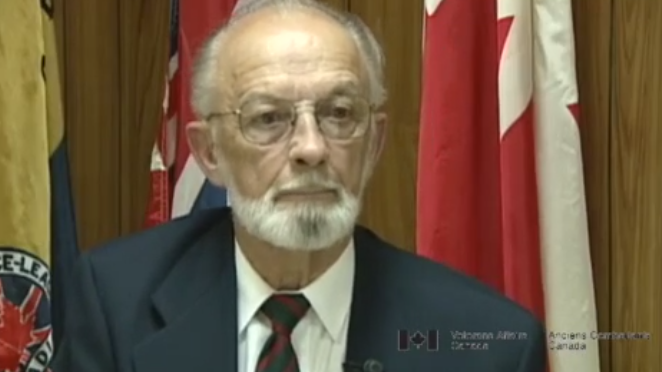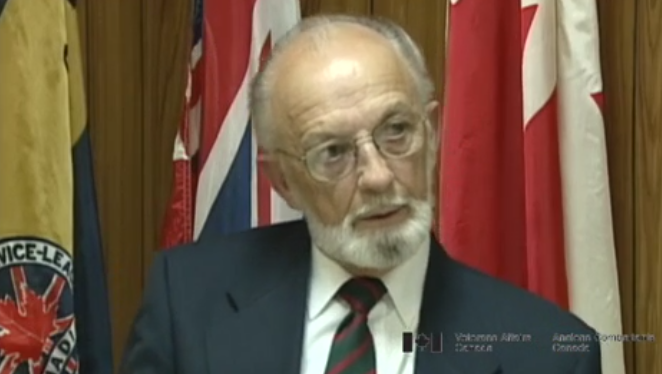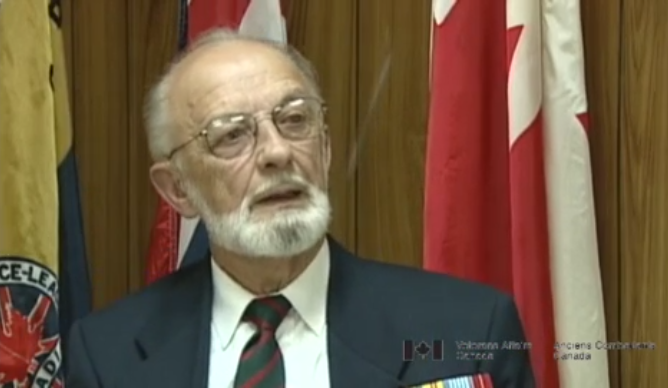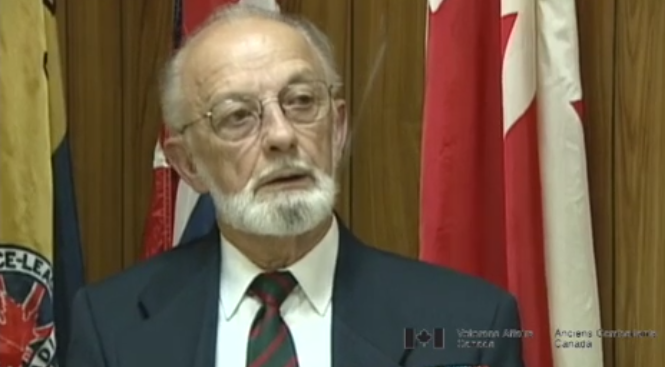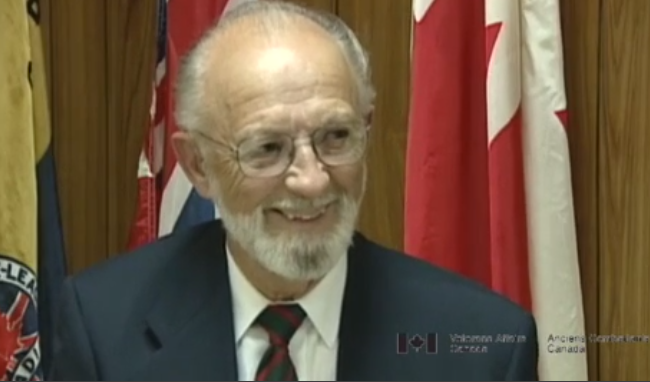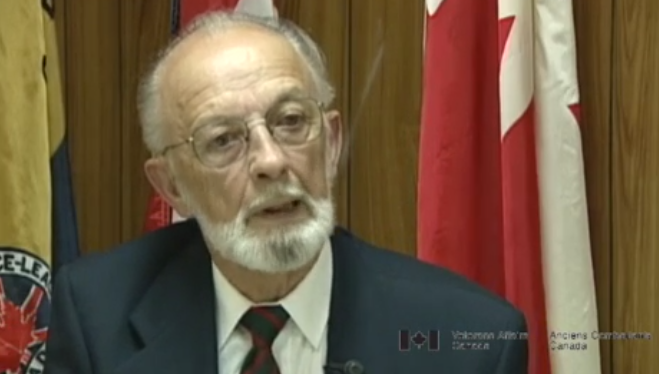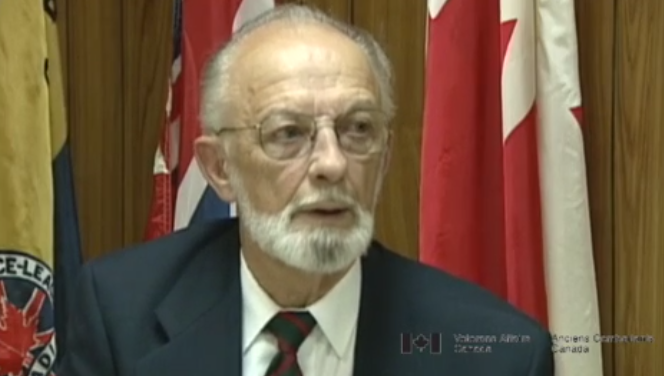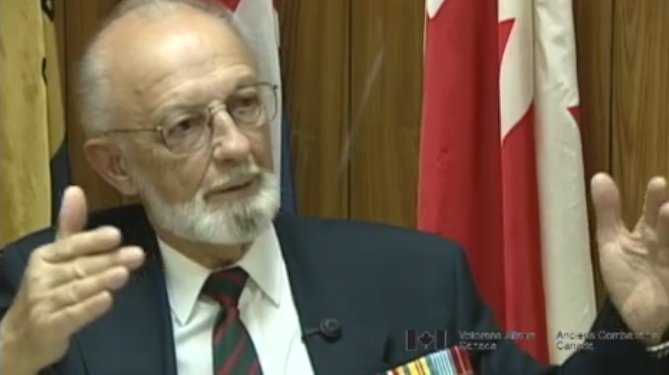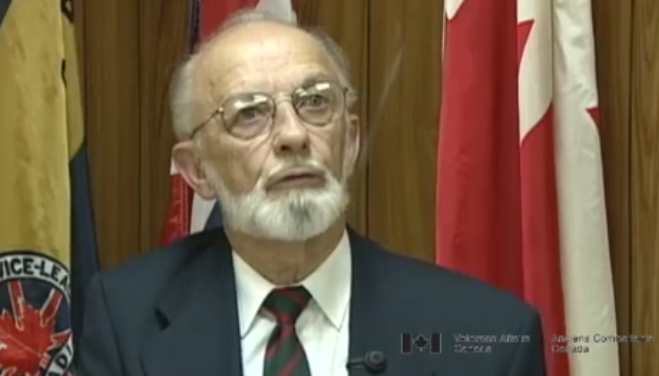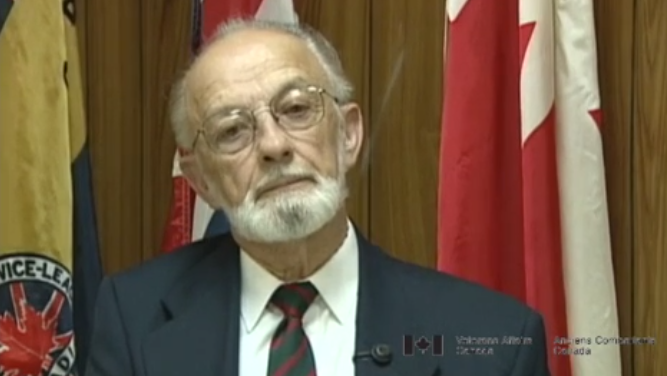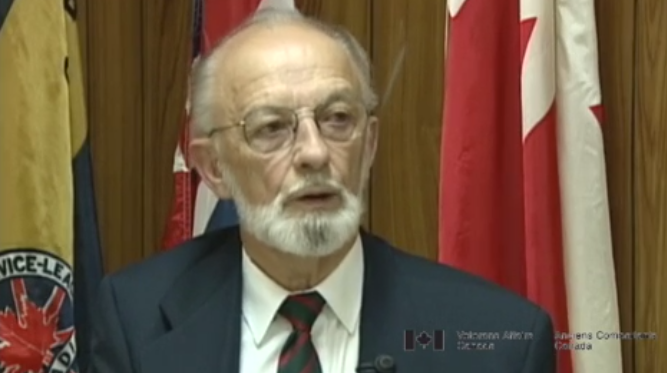They Issued Us With Straw Capes
Heroes Remember
They Issued Us With Straw Capes
Transcript
Description
Mr. Babin gives his general impression of Niigata labour camp and describes the clothing that POW’s were issued.
Alfred Joseph Babin
Alfred Joseph Babin was born in Moncton, New Brunswick, on October 15, 1921. He was one of five children. His father was a carpenter. Mr. Babin completed grade 8, but left school to work at the local 5 & 10 to help support his family. When old enough, he enlisted, citing better income as his reason. He first joined the New Brunswick Rangers, but quickly transferred to the Carleton and York Regiment. Basic training only consisted of infantry drills. He then joined the Royal Rifles, performing guard duties at the airbase in Gander, Newfoundland. After arriving in Hong Kong, Mr. Babin was volunteered as an ambulance driver, in which capacity he served until Hong Kong surrendered. Mr. Babin recalls in clear detail, life in the POW camps and slave labour in the coal yards near Niigata. After safely returning to Canada, Alfred Babin remained in the Canadian Armed Forces as a member in the military band.
Meta Data
- Medium:
- Video
- Owner:
- Veterans Affairs Canada
- Duration:
- 2:23
- Person Interviewed:
- Alfred Joseph Babin
- War, Conflict or Mission:
- Second World War
- Location/Theatre:
- Japan
- Battle/Campaign:
- Hong Kong
- Branch:
- Army
- Units/Ship:
- Royal Rifles of Canada
- Occupation:
- Ambulance Driver
Related Videos
- Date modified:



